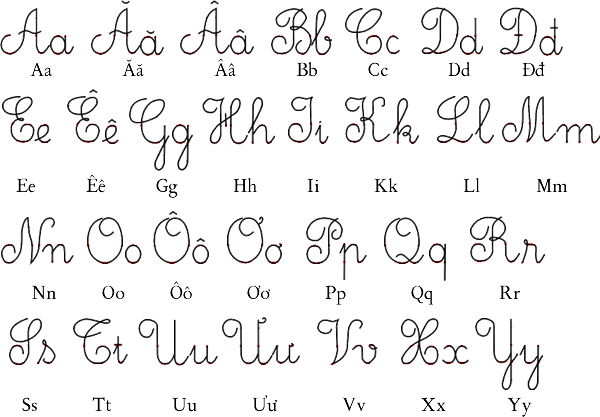Along historical period, languages used in Vietnam have been changed to suit with administration and times. Officially, Chinese, Nom language, and alphabet Vietnamese are respectively used in communication and administration.

In around 1st century BC, after a vast invasion, Vietnam wasset under brutal Chinese domination. For about 1,000 years, aiming at turning Vietnamese people into Chinese people actually, classical Chinese language (so-called “Han” language or “Nho” language) had been used in school and government. When the Dark Age of Chinese domination ended, classical Chinese language had still remained its dominant position and become official language of Vietnamese royal court and mandarin examinations.

At the beginning of independent feudal era of Vietnam, Nom language (in Vietnamese: “Chu Nom”) emerged. Nom language was created by purely recording Vietnamese but borrowing some characters of Han language. Thus, Nom language is significantly influenced by Han language in script and literary style sector. It was not until 15th century that literature in Nom language flourished with many historic works. Although Nom language had been used along with Han language for a long period, it hadn’t had the position of official language of the country. The exceptions are the short time of Ho Dynasty (15th century) and Tay Son Dynasty (18th century). At that time, all administrative documents were required to be written in Nom language.

In around 16th century, the first Western clergymen came to Vietnam to evangelize. In demand of communicating with Vietnamese people, they learned Vietnamese and recorded it in Latin characters. The inceptive version of National language (so-called Vietnamese language) was formed and recorded in the dictionary “Dictionarium Annamiticum Lusitanum et Latinum” published in 1651 by Mr. Alexandre de Rhodes, who was a French clergyman. Till 19th century, National language has been fully developed and widely disseminated. In 20th century, National language was used by Vietnamese intellectuals to propagate patriotic and anti-colonial ideas. Variety of books and newspapers were published in National language. Besides, many literary works (including poems and novels) were also written in National language by Tu Luc Van Doan’s members and other writers. After gained independence for the country in 1945, government of the Democratic Republic of Vietnam also recognized National language as official language of Vietnam.
